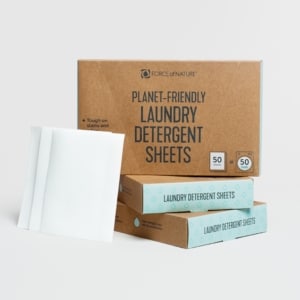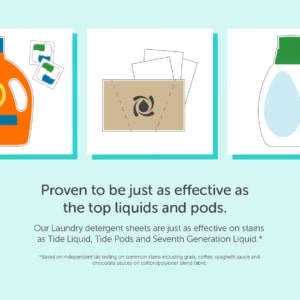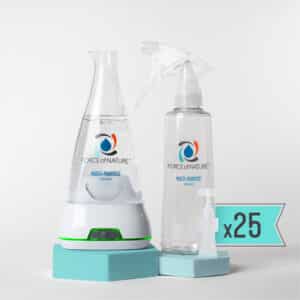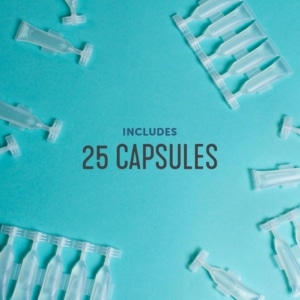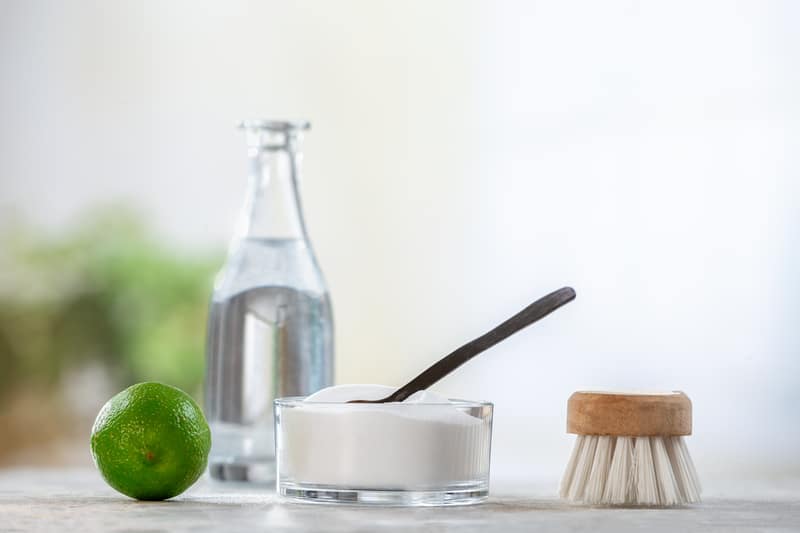
Vinegar has been a popular cleaning solution for decades. Today, a lot of us are turning to vinegar as an alternative to conventional cleaning products after learning about their toxic downsides. Unfortunately, vinegar’s cleaning power to kill germs is often overblown. Here’s the real deal on vinegar and germs.
Does Vinegar Kill Germs Sufficiently to be a Disinfectant?
We’re sorry to say no, but vinegar does not kill germs to a high enough level to be able to disinfect.
Vinegar (including DIY cleaning products that contain vinegar) isn’t powerful enough to kill many of the viruses & bacteria that cause illnesses like MRSA and Staph. Vinegar-based DIY products can leave behind up to 20% of the common germs that cause sickness. To be a disinfectant, a product must be able to kill 99.9% of a range of microbes (viruses, bacteria, mold and mildew) within a specified time period and registered with the EPA. Vinegar is not an EPA registered disinfectant. So when killing 99.9% of viruses and bacteria is really critical, don’t rely on vinegar to disinfect or sanitize. An example is when viruses like Coronavirus are going around, you’ll want to swap out your vinegar for an EPA registered disinfectant and sanitizer.
More Considerations to Keep in Mind
Watch Your Concentrations
This is especially important when cleaning around pets and children. Vinegar is definitely a much safer alternative to conventional cleaning products containing ingredients like phthalates, QUATs, ethanolamine compounds, bleach or ammonia, but it can still cause injury to pets and humans if it’s the wrong concentration. Vinegar contains acetic acid, which can cause burns unless it’s diluted sufficiently. If you have a high concentration of vinegar in your DIY cleaning product, you can even damage eye tissue and burn the esophagus and stomach if it gets into the wrong hands (or paws!). So make sure to watch those concentrations.
Get Rinsing & Skip the Stone!
Because vinegar is corrosive, you need to rinse your homemade vinegar cleaner off surfaces like unsealed grout and rubber seals like on dishwasher gaskets and windows to avoid damaging them over time. This is why you should never use vinegar on your stone surfaces including marble, limestone, granite, onyx or travertine to avoid dulling or etching the stone’s surface.
Vinegar Can Be Harmful To Plants
If you have a black thumb, maybe vinegar can share some of the blame? Because vinegar is very acidic, it can cause plants to grow slower or even kill them if it’s used on or near them.
A Better Option: Force of Nature Kills Germs Without Toxic Chemicals
Surprise! While vinegar on its own isn’t up to the challenge, when combined correctly with other ingredients, it can become a powerful cleaning and disinfecting tool to fight germs. At Force of Nature, we have a little appliance that supercharges vinegar by combining it in the right concentration with salt and water, and then electricity converts the solution into a powerful cleaner that sanitizes and disinfects. Force of Nature kills germs (99.9%!) when used as directed, and is a much more effective alternative to vinegar for killing germs in your home. In fact, Force of Nature is EPA registered for use in disinfecting and sanitizing hospitals, ICUs, schools, daycares, veterinary clinics and more. It uses a technology called electrolyzed water that has been used for over 50 years in industrial applications, like in veterinary, wound therapy and eye care products. We’ve miniaturized it for your countertop. It replaces all your cleaning products with just one family-friendly option, so you can say goodbye to cabinets stuffed full of toxic disinfectants, sanitizers, deodorizers, kitchen, bath, glass & rug cleaners. And Force of Nature is the only disinfectant and multipurpose cleaner that completely eliminates single-use plastic bottles, so it’s earth-friendly too.
More questions? You might also want to know does vinegar kill viruses or learn the answer to does vinegar disinfect. Learn more about Force of Nature’s technology or how Force of Nature kills viruses.
